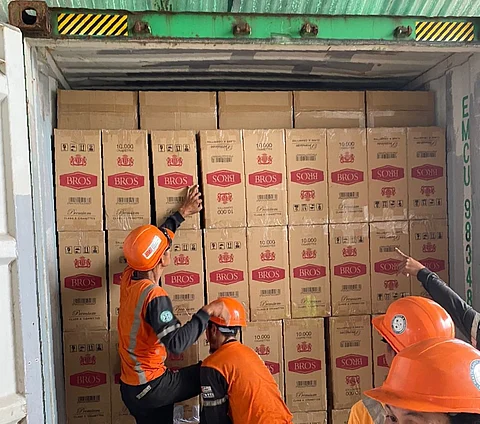
- NEWS
- the EDIT
- COMMENTARY
- BUSINESS
- LIFE
- SHOW
- ACTION
- GLOBAL GOALS
- SNAPS
- DYARYO TIRADA
- MORE

The Department of Agriculture (DA) is ramping up efforts to stem the influx of illegally imported onions after samples taken from Manila’s Paco Public Market tested positive for E. coli, sparking renewed food safety concerns and a call for stricter market monitoring.
Agriculture Secretary Francisco Tiu Laurel Jr. sounded the alarm over the contaminated onions, many of which were noticeably larger than locally harvested varieties. The DA chief confirmed no import permits have been issued, emphasizing the need to protect Filipino farmers who have just completed their harvest season.
“This is a food safety issue and a clear threat to public health,” Tiu Laurel said, stressing that the DA will confiscate contaminated onions as mandated by the Food Safety Act of 2013.
The Bureau of Plant Industry (BPI), along with other DA field units, has been ordered to inspect public markets for potentially smuggled onions and submit samples for testing. Tiu Laurel also tapped the Philippine National Police for intelligence gathering, in a bid to identify and apprehend illegal importers.
The DA’s heightened vigilance comes amid growing reports of oversized onions, typically a telltale sign of foreign origin, making their way into local markets without inspection or proper sanitation.
BPI Director Gerald Glenn Panganiban formally alerted the Manila local government unit to the lab results, which indicated possible fecal contamination and poor handling practices.
“In order to protect the public and consumers from food-borne illnesses and unsanitary (conditions), we recommend the confiscation of the said commodities,” Panganiban wrote in a letter to the Manila LGU.
In a separate operation, the BPI and Bureau of Customs intercepted 25 metric tons of red onions at the Mindanao International Container Terminal in Misamis Oriental. These will undergo laboratory tests for heavy metals, pesticide residues, and microbial contamination.
Tiu Laurel said that if the shipment is found safe for consumption, the government may distribute it to avoid wastage.
